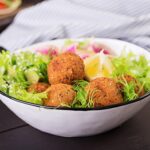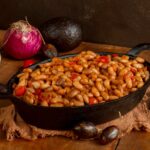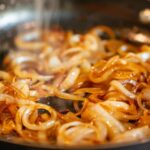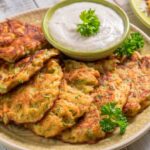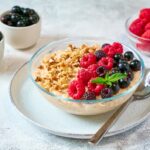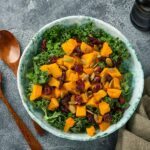When trying to conceive, your diet plays a crucial role in supporting fertility and preparing your body for a healthy pregnancy. Certain foods and drinks can negatively impact your fertility by affecting hormone levels, disrupting ovulation, or impairing sperm quality. Here are 20 foods that South Africans should avoid if they’re trying to conceive.
1. Trans Fats
Trans fats, commonly found in baked goods, fried foods, and processed snacks, can harm ovulation and disrupt hormone levels. They increase the risk of insulin resistance, which can affect fertility.
2. Processed Meats
High in preservatives, nitrates, and saturated fats, processed meats like bacon, sausages, and deli meats can lead to inflammation and reduce sperm quality in men, as well as disrupt ovulation in women.
3. Refined Sugars
Consuming too much refined sugar, found in sweets, sodas, and sugary cereals, can lead to insulin resistance, which can affect ovulation and overall hormonal balance, making it harder to conceive.
4. High-Mercury Fish
Fish like shark, swordfish, and king mackerel are high in mercury, which can impair fetal development and reduce fertility. It’s best to opt for low-mercury fish like salmon or sardines instead.
5. Caffeine
While moderate caffeine intake may not be harmful, excessive consumption (more than 200-300 mg per day) can reduce fertility in both men and women. Limit your intake of coffee, tea, and energy drinks.
6. Alcohol
Alcohol can negatively impact fertility by disrupting hormone levels and reducing sperm quality. It’s advisable to minimize or avoid alcohol entirely when trying to conceive.
7. Soy Products
Soy contains phytoestrogens, which can mimic estrogen in the body and potentially disrupt hormonal balance. While occasional consumption may not be harmful, it’s best to limit soy intake if you’re trying to conceive.
8. High-Glycemic-Index Foods
Foods with a high glycemic index, such as white bread, white rice, and sugary snacks, can cause rapid spikes in blood sugar levels, leading to insulin resistance and hormonal imbalances that can affect fertility.
9. Artificial Sweeteners
Artificial sweeteners like aspartame and saccharin are controversial, with some studies suggesting they may negatively affect fertility. Opt for natural sweeteners like honey or stevia instead.
10. Low-Fat Dairy Products
Low-fat dairy products may contain added sugars and hormones that can disrupt ovulation. Full-fat dairy is a better option, as it’s been linked to improved fertility in some studies.
11. Processed Carbohydrates
Processed carbohydrates, such as pasta, white bread, and pastries, can cause blood sugar fluctuations, leading to insulin resistance and hormonal imbalances that can hinder conception.
12. Fast Food
Fast food is often high in trans fats, sodium, and preservatives, all of which can negatively impact fertility. Opt for home-cooked meals made with fresh ingredients instead.
13. Excessive Red Meat
While red meat can be part of a balanced diet, excessive consumption, particularly of fatty cuts, can lead to inflammation and reduced fertility. Choose lean cuts and limit your intake to a few times per week.
14. Soda and Sugary Drinks
Sugary drinks like soda and energy drinks are loaded with refined sugars and artificial ingredients, which can lead to insulin resistance and weight gain, both of which can negatively impact fertility.
15. Unpasteurized Dairy Products
Unpasteurized dairy products can contain harmful bacteria like listeria, which can increase the risk of miscarriage and other pregnancy complications. Always choose pasteurized dairy products.
16. Raw or Undercooked Eggs
Raw or undercooked eggs can carry the risk of salmonella infection, which can be particularly dangerous during pregnancy. Make sure to cook eggs thoroughly to reduce this risk.
17. High-Sodium Foods
Foods high in sodium, such as chips, processed meats, and canned soups, can lead to high blood pressure and dehydration, both of which can affect fertility. Opt for fresh, whole foods with minimal added salt.
18. Gluten (For Those with Sensitivity)
For individuals with gluten sensitivity or celiac disease, consuming gluten can cause inflammation and damage to the small intestine, which can impact nutrient absorption and fertility. If you suspect a gluten sensitivity, it’s best to avoid gluten-containing foods.
19. Excessive Dairy Consumption
While dairy can be part of a healthy diet, excessive consumption, particularly of low-fat or processed dairy products, can lead to hormonal imbalances. Stick to moderate portions of full-fat, natural dairy products.
20. Highly Processed Snacks
Snacks like chips, crackers, and cookies are often high in unhealthy fats, sugars, and additives, all of which can negatively impact fertility. Opt for whole, nutrient-dense snacks like nuts, seeds, and fresh fruit.
Making mindful dietary choices is an important step in supporting your fertility and preparing your body for pregnancy. By avoiding these 20 foods, you can help create an optimal environment for conception and a healthy pregnancy. Remember, a balanced diet rich in whole foods, lean proteins, healthy fats, and plenty of fruits and vegetables is key to boosting fertility and overall well-being.

